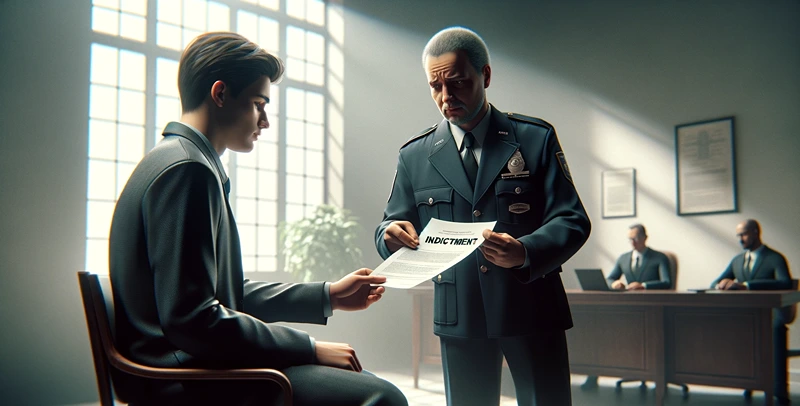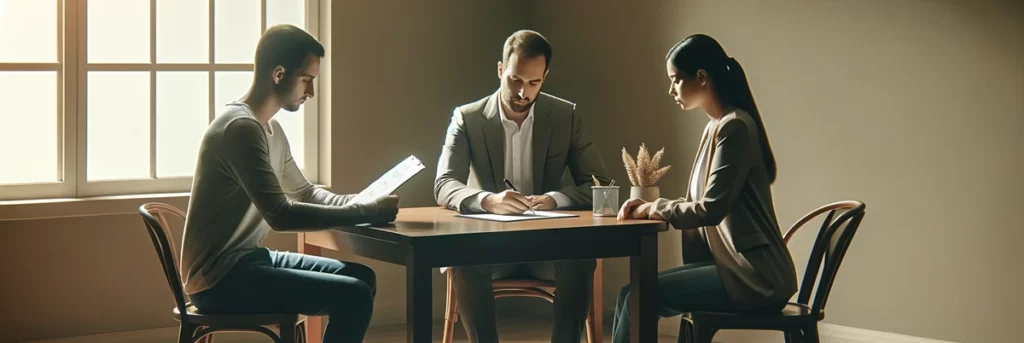
Investigative Article: How Does the Criminal Indictment Process Work in Arizona Law?
Imagine receiving a notice that you are being indicted for a crime that you did not commit. This may come as a shock and leave you wondering what to do next. It is essential to understand the criminal indictment process in Arizona and what it entails. In this investigative article, we will analyze the nine stages of a criminal case, the difference between an indictment and criminal charges, grand jury proceedings, and why you need a defense attorney.
What is a Criminal Indictment?
A criminal indictment is a formal accusation that someone has committed a crime. It is a legal document issued by a grand jury, a group of citizens who determine whether there is enough evidence to charge someone with a crime. In Arizona, a grand jury is made up of sixteen individuals chosen by the court.
When a grand jury receives a case, they review the evidence presented by the prosecutor and determine whether there is probable cause to believe that the accused committed the crime. If they find probable cause, the grand jury issues an indictment, and the case proceeds to trial.
The Nine Stages of a Criminal Case
A criminal case has nine stages, which are as follows:
Arrest
The first stage of a criminal case is an arrest. This occurs when a law enforcement officer believes that there is probable cause to arrest someone for committing a crime.
Booking
After an arrest, the next stage is booking. This is where the arrested individual's information is recorded, and they are taken into police custody.
Initial Appearance
During the initial appearance, the arrested individual is informed of their charges, and bail is set. Bail is money or property given to the court to ensure that the defendant will appear in court when ordered.
Preliminary Hearing
The preliminary hearing is where the prosecution presents evidence to show that there is enough probable cause to believe that the defendant committed the crime. If the judge finds probable cause, the case proceeds to trial.
Grand Jury Indictment
If the prosecutor decides to seek an indictment, they present the case to a grand jury. The grand jury determines whether there is probable cause to believe that the defendant committed the crime and issues an indictment if they do.
Arraignment
The arraignment is where the defendant is formally charged with the crime. At this stage, they enter a plea of guilty or not guilty.
Pre-Trial Conference
The pre-trial conference is where the prosecution and defense discuss the case and attempt to negotiate a plea bargain. If no agreement is reached, the case proceeds to trial.
Trial
During the trial, the prosecution presents its case, and the defense has an opportunity to provide a defense. The judge or a jury then determines whether the defendant is guilty or not guilty.
Sentencing
If the defendant is found guilty, the final stage is sentencing. The judge determines the appropriate punishment, which can range from fines to probation or imprisonment.
Is an Indictment the Same Thing as Criminal Charges?
Indictments are not the same as criminal charges. Criminal charges are filed by the prosecutor and are based on their belief that there is probable cause to charge someone with a crime. An indictment is a formal accusation issued by a grand jury that there is enough evidence to try someone for a crime.
Can I Be Indicted Without Being Arrested First?
Yes, you can be indicted without being arrested first. In some cases, the prosecutor may decide to seek an indictment before making an arrest. This is known as a "secret indictment" and is often used in cases where the defendant is a flight risk or poses a danger to the community.
How Do Grand Jury Proceedings Work?
A grand jury is a group of citizens who review the evidence presented by the prosecutor and determine whether there is probable cause to believe that the accused committed the crime. During grand jury proceedings, the prosecutor presents evidence, and witnesses testify. The defendant does not have the right to be present but can testify on their behalf if they choose to do so.
Grand jury proceedings are confidential, and the defendant is not entitled to a transcript of the proceedings. If an indictment is issued, the defendant is notified, and the case proceeds to trial.
Should You Hire a Defense Attorney For a Criminal Indictment?
Yes, it is always recommended that you hire a defense attorney when facing a criminal indictment. An experienced defense attorney can provide guidance and ensure that your rights are protected throughout the criminal justice process. They can also negotiate on your behalf and build a strong defense.
The criminal indictment process can be confusing and overwhelming, but understanding the process and your rights is crucial. Contact Kolsrud Law Offices if you have been indicted on criminal charges and need experienced and aggressive representation.
Criminal Indictment, Arizona
















